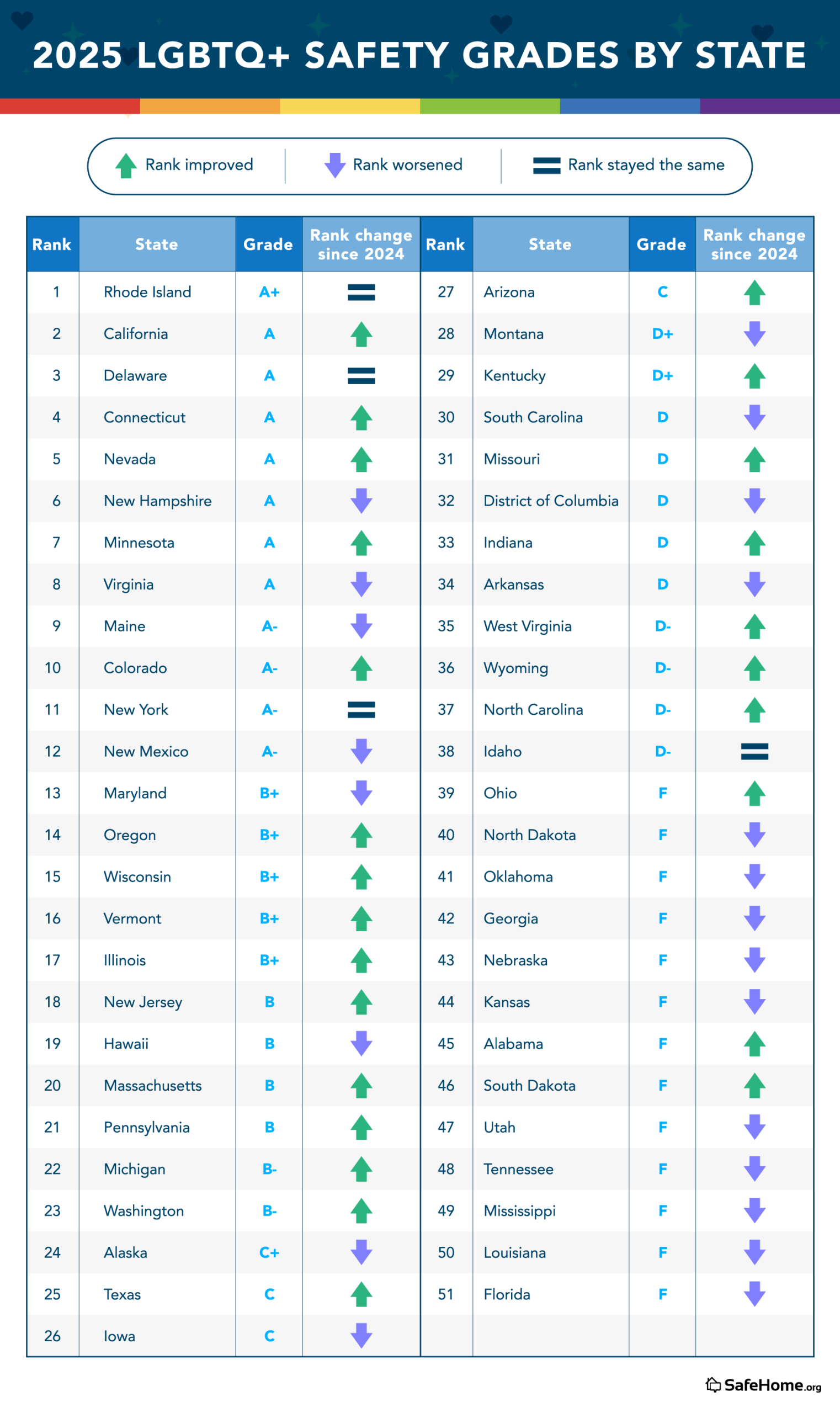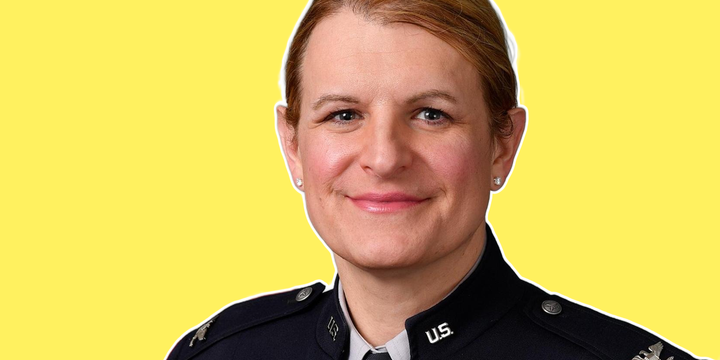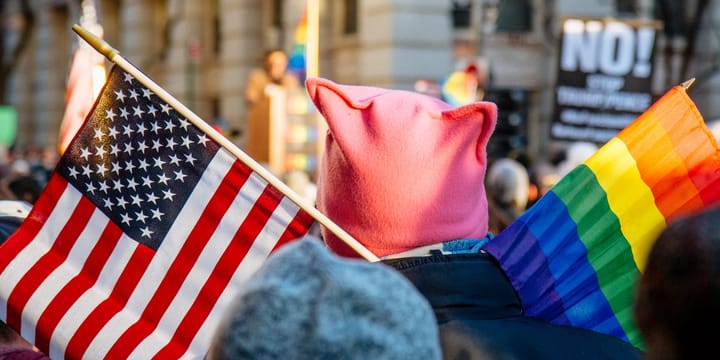Independence Day: Why LGBTQ+ America has no cause to celebrate
For many LGBTQ+ people across America, this Fourth of July is not a celebration but a moment of reflection. As freedoms are questioned, communities across the country are quietly showing courage, care, and hope.

Life, Liberty and the pursuit of Happiness.
These words ring through American history — yet for many LGBTQ+ people, especially in rural states, they feel like a cruel irony.
Across the country, from the Deep South to the Midwest, LGBTQ+ Americans are watching their freedoms rolled back — not celebrated. As Iowa state Rep. Aime Wichtendahl warned after lawmakers stripped gender identity protections from the civil rights code:
“It deprives us of our life, liberty and pursuit of happiness.”
This Independence Day, many queer Americans aren’t celebrating. They’re protesting. They’re organising. And they’re fighting — not for fireworks and flag-waving, but for the basic right to live safely, freely, and without fear.
Anti-LGBTQ+ Policies Are on the March
Under the Trump administration with access to a Republican-led House and Senate, anti-LGBTQ+ policies have taken centre stage.
In 2025, the U.S. Supreme Court allowed the Trump administration to reinstate the transgender military ban — echoing the regressive “Don’t Ask, Don’t Tell” era. Thousands of trans service members now face discharge, regardless of merit or dedication.
Simultaneously, federal agencies are removing LGBTQ+ protections from employment forms, undermining accountability in workplace discrimination cases.
And just yesterday, the House passed H.R.1 — a monstrous piece of legislation nicknamed the “One Big Beautiful Bill Act”. There is nothing beautiful about this bill. In fact, behind this comically sounding name lies a dangerous reality.
What’s in the Bill?
The Act locks in tax cuts for the wealthy while gutting vital support systems that millions rely on. These include:
- SNAP (Food Assistance): The Congressional Budget Office projects a 20% reduction in SNAP spending. LGBTQ+ people are 35% more likely to rely on SNAP than non-LGBTQ+ peers. According to the Williams Institute, nearly 2.1 million LGBTQ+ adults used SNAP in the past year.
- Medicaid: The bill restricts funding and narrows eligibility. This could push 12 million people off Medicaid. The Williams Institute reports that 13% of LGBTQ+ adults — about 1.8 million — rely on it. For transgender adults, that figure climbs to 21%.
- Gender-Affirming Healthcare Bans: An amendment to the bill explicitly prohibits federal funding for gender-affirming care at any age. Fortunately, the Senate dropped this provision at the last minute, as it did not comply with the Byrd Rule. Aimed at preventing irrelevant matters from being included in budget reconciliation legislation, the Byrd Rule is named after Senator Robert Byrd.
Poverty, Hunger, and Health Inequality
Even before the bill, LGBTQ+ Americans faced higher rates of poverty and food insecurity.
- 27% of LGBTQ+ adults experienced food insecurity in 2023, per the USDA.
- Nearly 70% of LGBTQ+ SNAP users live on less than $35,000/year.
- 13% of LGBTQ+ adults — and 21% of transgender people — rely on Medicaid.
- LGBTQ+ individuals are more likely to have disabilities or be caring for dependents.
Strict work requirements in the bill disregard the realities of queer life in America — especially for disabled people, single parents, and those in hostile work environments.
My Home State: Alabama
My home state is Alabama, where part of my family still lives and where my siblings grow up. However, it remains one of the most hostile states towards LGBTQ+ rights.
Alabama does not recognise hate crimes motivated by sexual orientation or gender identity and has no statewide anti-discrimination protections for LGBTQ+ people in housing, employment, or public services.
It continues to pass laws targeting trans youth, limiting LGBTQ+ education, and undermining local protections.
A 2024 study by SafeHome.org ranked Alabama as the one of the worst states for LGBTQ+ safety. It’s a place where being openly queer can cost you your safety — or your life. That’s not freedom. That’s fear.

So, What Are We Celebrating?
Today, many queer people don’t see fireworks — they see warning flares. And yet, amidst the darkness of it all, there is positive action underway.
Across the country, LGBTQ+ people are marching, voting, organising, and speaking out. This too is what the Fourth of July must honour — not just the founding fathers, but those fighting right now for freedom.
Here are just a few of the ways queer communities are rising up:
Across the South, trans mutual aid groups are raising funds to cover travel and prescriptions for those denied care in their home states.
In places like Texas and Florida, where trans healthcare is being restricted, LGBTQ+ communities have launched grassroots clinics and mutual aid networks. High school students walked out in protest against “Don’t Say Gay” laws.
In Austin, Kind Clinic provides free gender-affirming care, HIV testing and PrEP, and hormone therapy regardless of insurance status.
In Utah and Missouri, trans students have started peer-led support groups to fight isolation and discrimination.
Nationally, groups like GLSEN are training student organisers to run campaigns on pronouns, inclusive curricula, and safe bathrooms.
So this Fourth of July, let’s not pretend that America has fulfilled its promise. Let’s reclaim the Declaration. Let’s fight to ensure “liberty and justice for all” really means all.





Comments ()